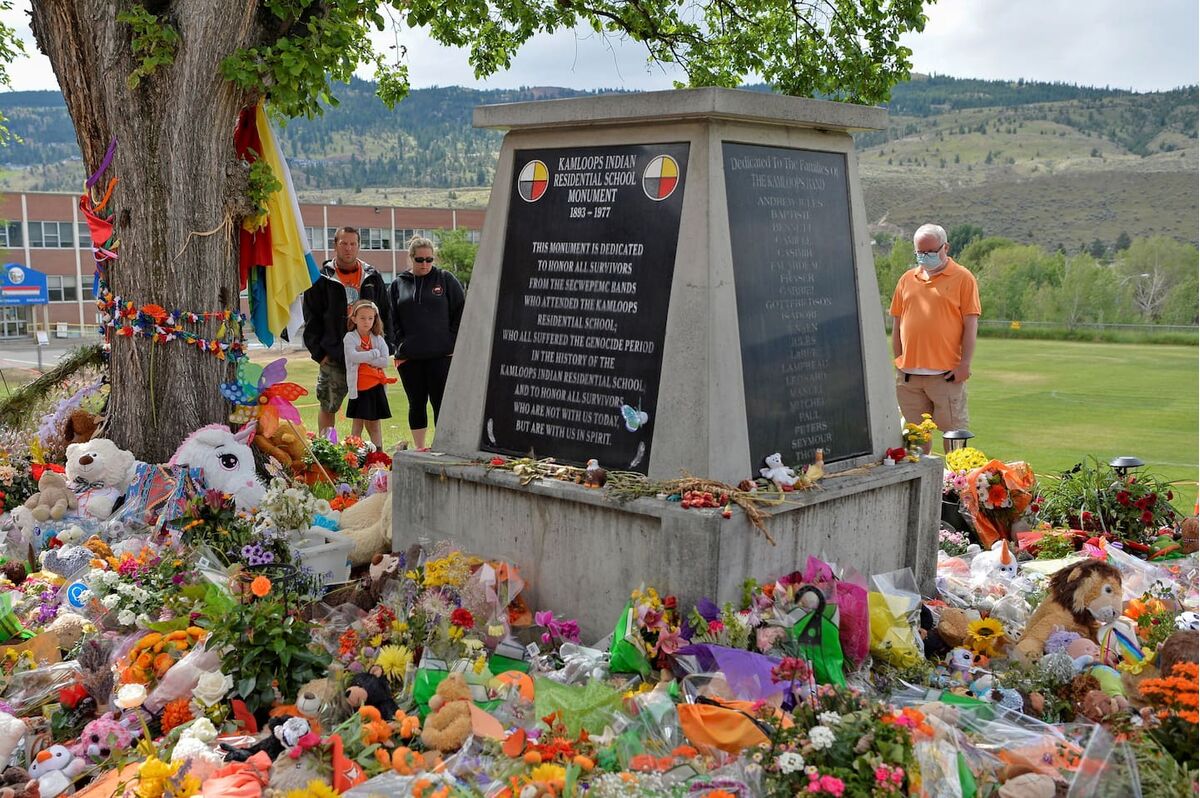
Just moments before Canada was due to issue a call for an international investigation into crimes against Uyghurs in China’s Xinjiang on Tuesday, a Chinese diplomat stepped in with Beijing’s own proposal: an investigation into Canada.
“We are deeply concerned about the human rights violations against the Indigenous people in Canada,” Jiang Duan, a senior official at China’s mission to the United Nations in Geneva, said at a meeting of the U.N. Human Rights Council.
Referencing the recent discovery of the remains of 215 children at the former Kamloops Indian Residential School in British Columbia, Jiang said China and its allies sought a “thorough and impartial investigation,” not just of the discovery but of broader Canadian crimes against Indigenous people.
Among those allies are autocratic countries also accused of human rights abuses, including Belarus, North Korea and Syria.
Jiang’s demand came immediately before Canadian officials read a statement that called on China to allow the U.N. human rights chief access to Xinjiang region to investigate more than 1 million Uyghur people who have been unlawfully detained there.
The statement also mentioned a continuing clamp down in Hong Kong under Chinese auspices and ongoing reports of repression in Tibet.
“We call on Chinese authorities to abide by their human rights obligations,” said Leslie E. Norton, Canada’s ambassador to the United Nations in Geneva.
The dueling demands represented a deep geopolitical and ideological divide at the top U.N. human rights body. Iran, Russia and Venezuela also backed China’s demands for an investigation in Canada.
Meanwhile, more than 40 countries had signed the statement read by Canada’s Norton, including Australia, Britain, France, Germany, Japan and the United States.
The remains found in Canada included those of Indigenous children as young as 3, shocking many Canadians.
In 2015, the Truth and Reconciliation Commission of Canada concluded that the forced separation and cruel treatment of Indigenous children at the schools between 1883 to 1996 constituted “cultural genocide.”
But some Canadian observers viewed the Chinese call as geopolitical wrangling.
“In Canada, we had a Truth and Reconciliation Commission. Where’s China’s Truth and Reconciliation Commission?” Canadian Prime Minister Justin Trudeau said at a Tuesday news conference.
“China is not recognizing there is even a problem. That is a pretty fundamental difference,” Trudeau continued. “That is why Canadians and people around the world are speaking up for people like the Uyghurs who find themselves voiceless faced with a government that will not recognize what is happening to them.”
Chinese media had recently assailed Canada’s role in pushing for an investigation of alleged Uyghur abuses, with an article in the Global Times suggesting that Canada, Britain and the United States were a “cartel of killers” who were whipping up “global Xinjiang hysteria.”
Michelle Bachelet, the United Nations’ top human rights envoy, said Monday that she hopes to visit Xinjiang this year to investigate reports of forced labor and torture. Chinese officials have repeatedly denied the allegations and said that Uyghurs have only been taken to vocational training facilities.
Bachelet has held almost three years of negotiations with Beijing over securing a visit to Xinjiang in the autonomous region for the investigation.
Relations between Ottawa and Beijing have been deeply strained since 2018, when Canadian officers arrested Huawei executive Meng Wanzhou after a U.S. request for extradition related to criminal fraud charges. Meng is under house arrest in Vancouver.
Soon after, China arrested two Canadians, Michael Kovrig and Michael Spavor, on murky national security allegations related to espionage claims. The two remain imprisoned with little contact with the outside world, despite secret trials this spring.
Amanda Coletta contributed to this report.
https://www.washingtonpost.com/world/2021/06/22/china-canada-uighur-indigenous/

